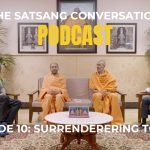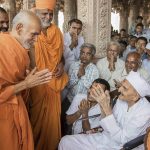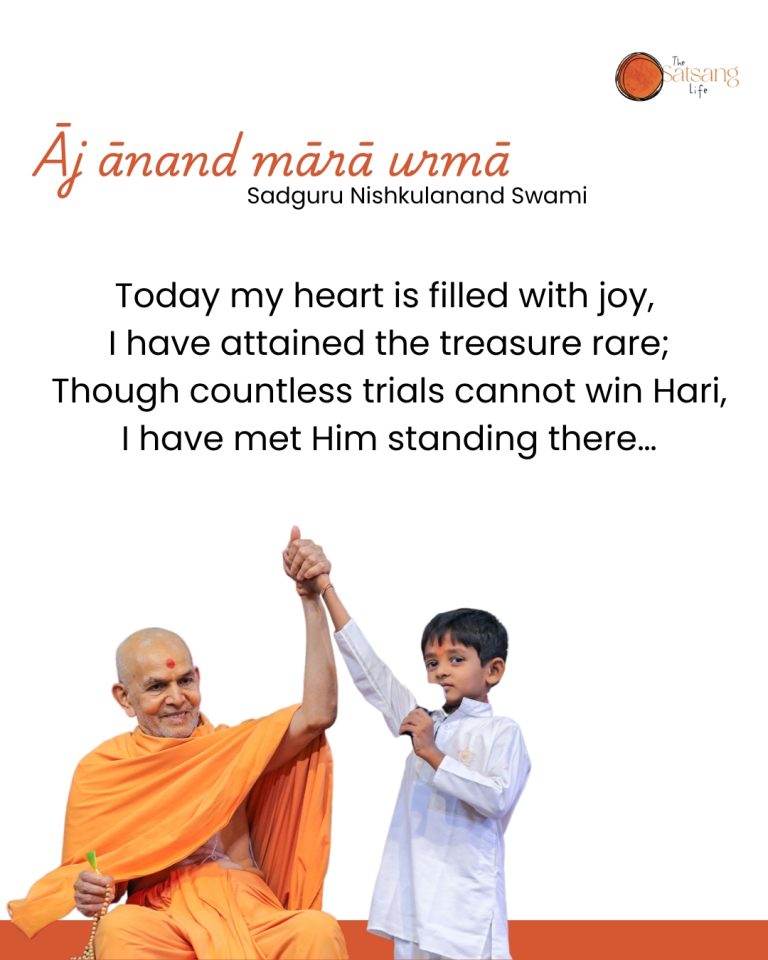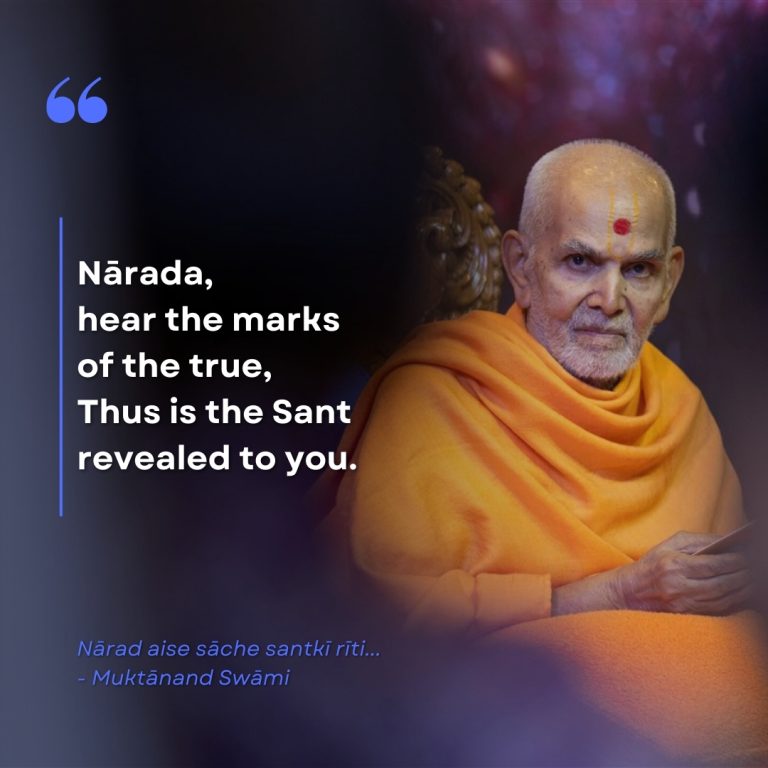




There is a special hush that falls over the heart whenever we meet a genuine sant — one of those rare souls who lives so naturally in the presence of the Divine that even ordinary conversation feels lit from within. “Balihārī maĩ aise sant kī… I offer myself to such a saint,” runs the opening line of the Braj couplet above, and the sentiment is as timeless as it is direct: when we encounter real holiness, gratitude is instinctive.
The composition goes on to sketch three hallmarks of a true spiritual guide. First, he “speaks no waste, no idle sound.” Words for him are never filler; they are vessels of meaning. In an age of endless chatter, the sheer economy of a saint’s speech is itself a teaching, reminding us that silence—when filled with God—communicates more than any torrent of clever remarks.
Second, the poet tells us that whoever comes to such a sage “with heart sincere, he drives away their doubt and fear.” A saint’s compassion is not theoretical; it is felt as relief in the seeker’s own chest. Notice that the verb is active: the master drives away anxiety. Spiritual authority here is measured not in followers or fame but in a tangible power to lighten another’s inner load. He “walks the world to light the soul,” carrying his medicine wherever need arises.
Finally, we see the saint himself: free of pride, “swaying with joy,” forever cutting through the “knots” of ignorance that keep us bound. The image evokes someone who moves lightly, almost playfully, because he has long since surrendered the heavy baggage of ego. Little wonder that the poet—identified as Brahmānand—ends exactly where he began: in praise. Day and night he chants the “endless glory” of the Divine (here addressed as Kamalākānt, the Lord of the Lotus), because when one has tasted such freedom, celebration becomes the most natural language.
Taken together, these verses read like a pocket-sized manual for discernment. If we wish to know whether a teacher or mentor is worth our devotion, we are invited to look for three simple signs: disciplined speech, active compassion, and joyous humility. Find these qualities and, says the poet, it is no exaggeration to give one’s whole self in gratitude. After all, to meet a living embodiment of divine love is to glimpse our own highest possibility in human form—a mirror in which we, too, might someday see a face unclouded by fear, lit by the quiet brilliance of God-centered joy.
| Verse | Translation |
| Balihari mai aise santki… | I offer myself to such a sant… |
| Urutha kabhu bakvad kare nahi, kahat katha Bhagvantki…1 | He speaks no waste, no idle sound, But shares where God’s great truths are found. |
| Jo sharanagat avat yake, chinta tarat chittki; Parmarath karan jag vichrat, riti ehi mahantki…2 | Who comes to him with heart sincere, He drives away their doubt and fear; He walks the world to light the soul – Such is a sadhu’s selfless goal. |
| Tan abhimān tyāg kari dolat, chhodat granthi anantki; Brahmanand kahat hai nishdin, kirti Kamalākantki…3 | He sways with joy, all pride let go, And cuts the knots that bind below; Brahmanand sings, both night and day, God’s endless glory in every way. |
Balihari mai aise santki… (Audio): https://app.aksharamrutam.in/hU3rnYdrDiGB8Q9M6
Introduction on Paramhansa (Text): https://www.baps.org/About-BAPS/TheFounder%E2%80%93BhagwanSwaminarayan/Legacy/Disciples/Paramhansas.aspx
Balihari mai aise santki… (Anirdesh Translation): https://www.anirdesh.com/kirtan/study.php?by=type&type=Translation&part=1&no=722
Follow our Socials: Instagram | Youtube | Tiktok | Telegram | Whatsapp | Spotify | Apple Podcast














+ There are no comments
Add yours